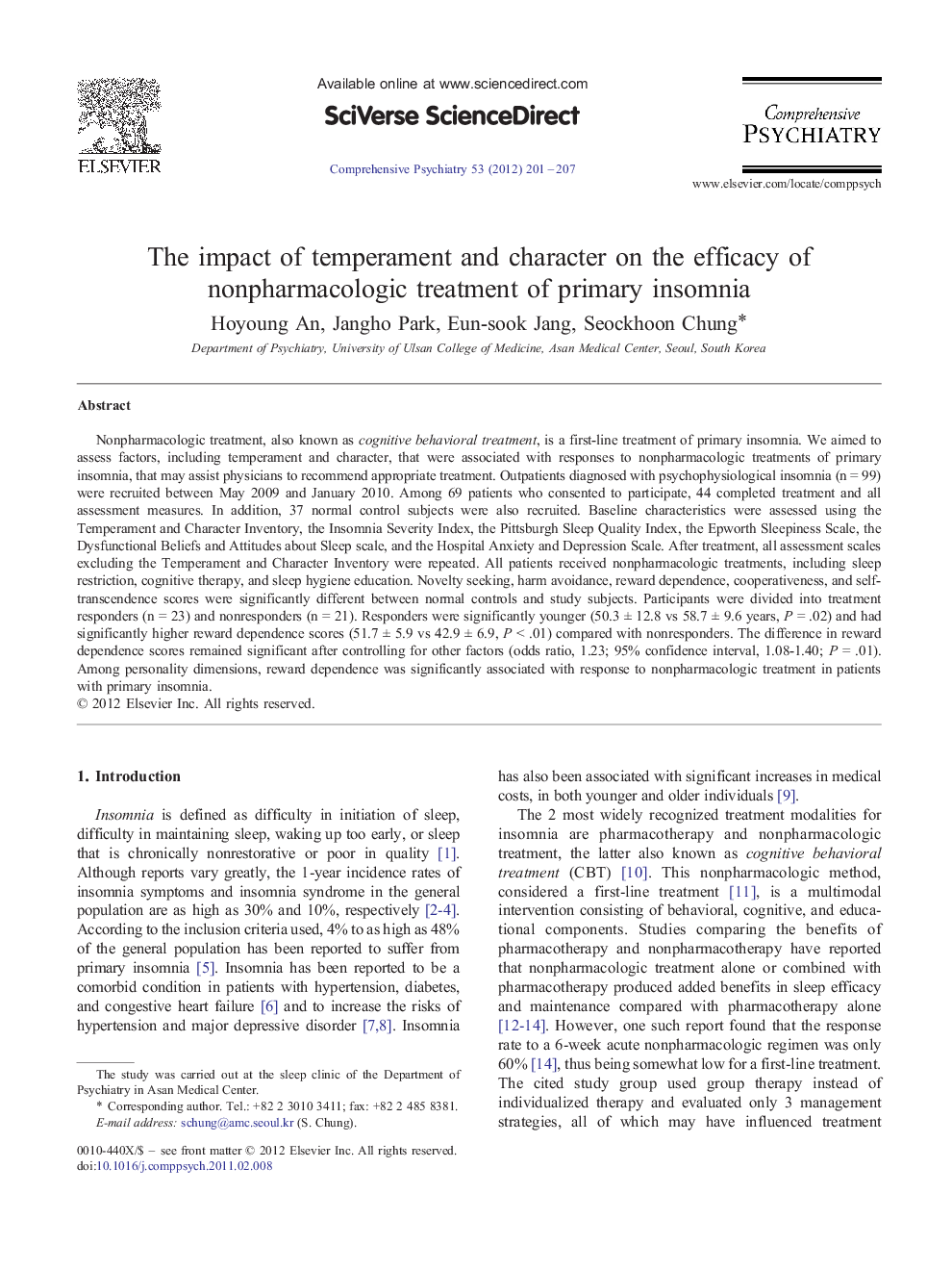| کد مقاله | کد نشریه | سال انتشار | مقاله انگلیسی | نسخه تمام متن |
|---|---|---|---|---|
| 318339 | 538309 | 2012 | 7 صفحه PDF | دانلود رایگان |

Nonpharmacologic treatment, also known as cognitive behavioral treatment, is a first-line treatment of primary insomnia. We aimed to assess factors, including temperament and character, that were associated with responses to nonpharmacologic treatments of primary insomnia, that may assist physicians to recommend appropriate treatment. Outpatients diagnosed with psychophysiological insomnia (n = 99) were recruited between May 2009 and January 2010. Among 69 patients who consented to participate, 44 completed treatment and all assessment measures. In addition, 37 normal control subjects were also recruited. Baseline characteristics were assessed using the Temperament and Character Inventory, the Insomnia Severity Index, the Pittsburgh Sleep Quality Index, the Epworth Sleepiness Scale, the Dysfunctional Beliefs and Attitudes about Sleep scale, and the Hospital Anxiety and Depression Scale. After treatment, all assessment scales excluding the Temperament and Character Inventory were repeated. All patients received nonpharmacologic treatments, including sleep restriction, cognitive therapy, and sleep hygiene education. Novelty seeking, harm avoidance, reward dependence, cooperativeness, and self-transcendence scores were significantly different between normal controls and study subjects. Participants were divided into treatment responders (n = 23) and nonresponders (n = 21). Responders were significantly younger (50.3 ± 12.8 vs 58.7 ± 9.6 years, P = .02) and had significantly higher reward dependence scores (51.7 ± 5.9 vs 42.9 ± 6.9, P < .01) compared with nonresponders. The difference in reward dependence scores remained significant after controlling for other factors (odds ratio, 1.23; 95% confidence interval, 1.08-1.40; P = .01). Among personality dimensions, reward dependence was significantly associated with response to nonpharmacologic treatment in patients with primary insomnia.
Journal: Comprehensive Psychiatry - Volume 53, Issue 2, February 2012, Pages 201–207